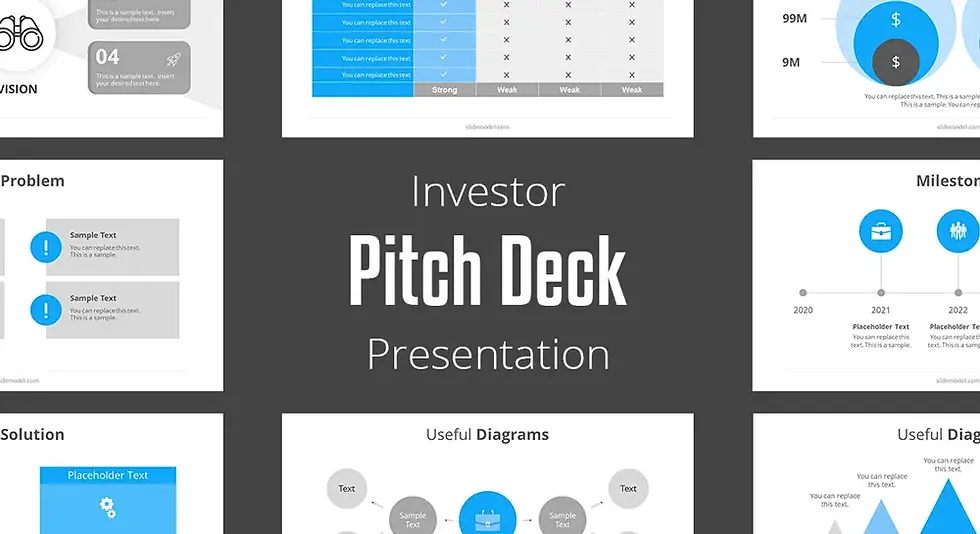retail industry trends 2025: how AI is changing the game
- Anika Bajaj

- Jul 4, 2025
- 4 min read
Retail Industry Trends 2025: How AI is Changing the Game
Retail industry trends are changing fast, and in 2025, AI is leading the way. From smart product recommendations to faster deliveries and better stock management, artificial intelligence is helping retailers work smarter and serve customers better. Whether you run a store, manage supply chains, or build eCommerce platforms, understanding these AI-driven trends is key to staying ahead.

Retail Industry Trends 2025:
AI-Powered Virtual Shopping Assistants
Virtual shopping assistants are making online shopping feel more personal and efficient. These AI bots guide customers through their buying journey, offering real-time support, product suggestions, and quick answers to common queries. They help retailers boost engagement while saving on customer service costs.
Hyperlocal Delivery
Retailers are adopting the hyperlocal delivery business model to meet the growing demand for speed and convenience. With AI, businesses can automate delivery routes, predict peak hours, and manage local inventory better. This ensures faster fulfilment and improved customer satisfaction in nearby zones.
\Visual Search and Smart Recommendations
AI now allows shoppers to search for products using images instead of text. This feature, paired with smart recommendations based on browsing and purchase history, improves discovery and increases conversion rates. Retailers offering these tools create a smoother, more tailored shopping experience.
Inventory Optimisation
AI helps retailers keep the right products in stock without overordering. By analysing demand patterns, seasonal trends, and sales data, AI-driven systems suggest what to restock and when. This cuts down waste, reduces storage costs, and improves order accuracy.
Fraud Detection and Security
AI is playing a major role in reducing fraud and securing transactions. Retailers can prevent unauthorized access and fake orders by monitoring user behaviour and flagging unusual activities in real time. It’s a smart layer of protection for both businesses and customers.
Voice Commerce
With the rise of smart speakers and voice assistants, more consumers are shopping using voice commands. AI enables accurate voice recognition and connects shoppers to products quickly. Retailers integrating voice commerce are tapping into a hands-free, growing sales channel.
Other Important Trends to Watch:
Sustainability and Ethical Practices
Customers are choosing brands that care for the planet. Retailers are focusing on eco-friendly packaging, ethical sourcing, and waste reduction to meet growing sustainability expectations.
Frictionless Shopping with Contactless Payments
Digital trends in the retail industry, like tap-to-pay, digital wallets, and mobile checkouts, are now standard. Contactless payments speed up transactions and offer safer, smoother shopping experiences in-store and online.
Immersive Technologies Enhance Experience
AR and VR are helping customers “try before they buy” from their homes or in-store. These immersive tools make shopping interactive, boost engagement, and reduce return rates.
Trust and Transparency via Blockchain
Blockchain brings more visibility into sourcing, payments, and delivery. It builds trust by allowing both retailers and consumers to verify product origins and transaction records.
Better Decisions with Data Analytics
Data is driving smarter decisions in retail. With the help of AI, businesses can track trends, forecast demand, and personalise marketing, leading to more effective strategies and stronger ROI.
What’s Next for Retail Innovation?
Retail Gets Smarter with Hyper-Automation
Retailers who are going with the recent trends in retailing are automating everything, from order processing to customer support, using AI, robotics, and machine learning. This reduces manual effort, speeds up operations, and improves accuracy across the supply chain.
Putting People First with Human-Centric Tech
Retail industry trends for the future are focusing on innovations like blending tech with empathy. AI tools, chatbots, and in-store experiences will be designed to feel more human, personal, and easy to use, creating stronger customer relationships.
The Rise of Platform Thinking
Retailers are moving beyond products to build platforms, connecting services, partners, and experiences. It’s not just about selling; it’s about creating ecosystems that add value at every touchpoint.
Closing Thoughts
As 2025 unfolds, emerging trends in the retail industry are entering a new phase, driven by AI, automation, and customer-first innovation. Businesses that adapt quickly, embrace technology, and focus on meaningful experiences will stay ahead. Whether you're a startup founder, retail leader, or tech professional, the message is clear: the future of e-commerce fulfilment is intelligent, agile, and connected. Now is the time to act, evolve, and lead.
FAQs
Q. What is the future trend in AI for retail?
AI trends in retail are moving towards hyper-personalisation, real-time customer support, and smarter automation. Tools like virtual assistants, predictive analytics, and visual search are helping retailers deliver faster, more personalised shopping experiences.
Q. How will AI affect the retail industry in 5 years from now?
Over the next five years, AI will become central to every retail function, from supply chain optimisation to automated customer service. It will boost efficiency, reduce costs, and enable retailers to offer more personalised and data-driven experiences at scale.
Q. What is the future of AI in sales?
AI will transform sales by analysing customer behaviour, predicting buying patterns, and offering tailored recommendations. Sales teams will rely more on AI tools for lead scoring, automated follow-ups, and dynamic pricing, leading to smarter, faster conversions.
Q. What is the most important retail innovation in 2025?
One of the key innovations is the use of AI-powered assistants and automation tools that enhance customer experience and streamline operations. Combined with technologies like visual search and voice commerce, these innovations are setting new retail standards.
Q. How is information technology transforming retail?
Information technology is reshaping retail through digital storefronts, real-time inventory systems, and AI-driven tools. It enables retailers to better understand customer needs, respond faster, and create seamless shopping journeys across all channels.




Comments